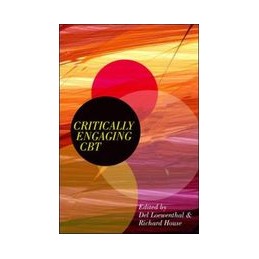- Reduced price

Order to parcel locker

easy pay


 Delivery policy
Delivery policy
Choose Paczkomat Inpost, Orlen Paczka, DHL, DPD or Poczta Polska. Click for more details
 Security policy
Security policy
Pay with a quick bank transfer, payment card or cash on delivery. Click for more details
 Return policy
Return policy
If you are a consumer, you can return the goods within 14 days. Click for more details
The editors of this book argue that in the rush to embrace CBT there has not been sufficient attention paid to the potential drawbacks of such a therapy. This book redresses the balance by taking a critical look at CBT through the lens of various standard psychotherapy approaches, considering those areas where CBT is appropriate as well as those where it might not be.
Leading figures associated with particular approaches (including Jungian, Systemic, Lacanian and Rogerian practitioners) examine the role of CBT and how it fits within their approach, exploring a synthesis of the two.
Responses from three leading international CBT authorities enable readers to engage with both sides of the emerging global debate about CBT, and to consider what CBT therapists and other psychotherapists might learn from one another.
Critically Engaging CBT is key reading for training and practising counsellors and psychotherapists as well as other health professionals who deal with CBT and/or other psychological interventions.
Contributors:: Ann Casement, Windy Dryden, John Heaton, Jeremy Holmes, Richard House, Del Loewenthal, Stacey Millichamp, Ian Parker, Howard A. Paul, Michael Proeve, Anthony Ryle, Peter Stratton and Keith Tudor.
Data sheet
CBT and the other psychological therapies in an age of happiness
Psychoanalysis & CBT: Confluence of theory, watershed in practice?
Critically engaging CBT: The view from CAT
Happiness and existential thought
Systemic family and couple therapy
Lacanian analysis and CBT: Gaps
Being in process, being in context: A person-centred perspective on happiness
A dialogic between analytical psychology and cognitive behavioural psychology
Critically engaging CBT: Psychosynthesis
Critically engaged CBT
CBT, happiness and evidence-based practice
What can CBT therapists and other psychotherapists learn from one another?
Conclusion
Reference: 58160
Author: Heather Prendergast
